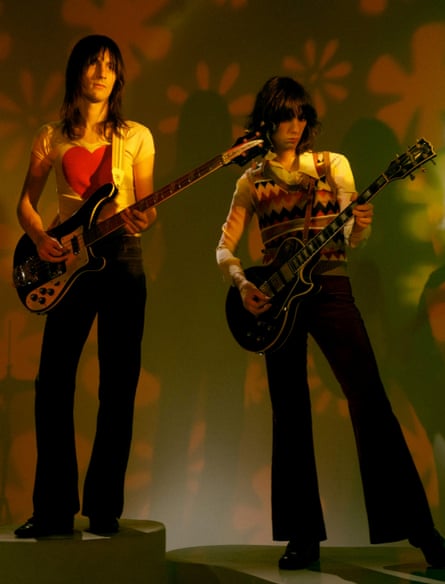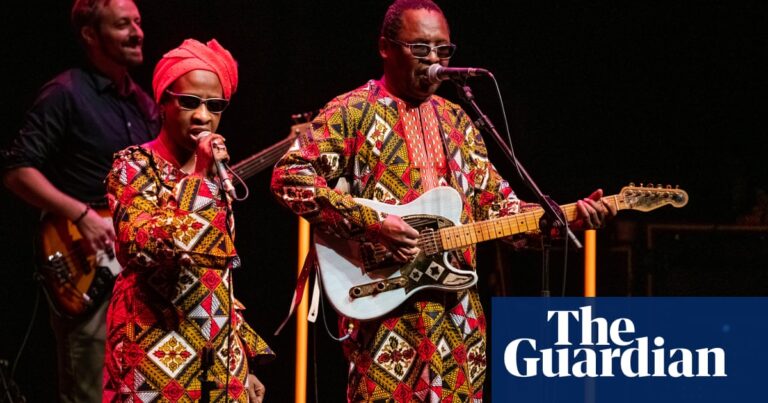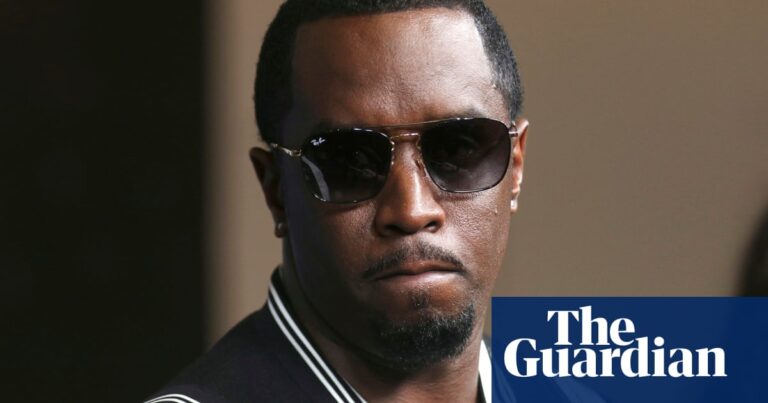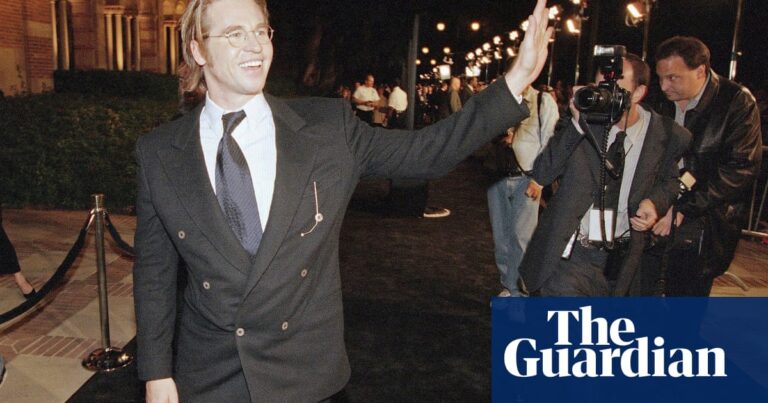The Lemon Twigs are deep in one of the great songwriting grooves of the 21st century. Or is it the previous century? Their new album, A Dream is All We Know, is a fabulous pop confection that magically transports the listener to the idyll of Abbey Road studios in 1966, if the Beatles were actually two brothers in their mid-20s from Long Island, New York. However, Brian and Michael D’Addario are reluctant to write off their music as nostalgic escapism.
“Yes, we record on analogue tape, and we don’t think being on phones all day is a good way to live our lives,” sighs Michael at their Brooklyn studio. “But it’s not like we’re rejecting ‘contemporary life’. And I don’t know what we’re really excluding from our lives by not using social media or recording on Pro Tools, anyway. Who wants to stare at a computer when they’re doing something that’s supposed to be fun?”
“We’re just writing music that suits us,” adds Brian, the more sober Mike Nesmith to his younger brother’s irrepressible Micky Dolenz. “Dylan’s early songs were indebted to Woody Guthrie, but he wasn’t being retro – he was continuing a tradition, just like classical composers wrote for violins and cellos for centuries. We have our own style; we’re not rewriting music that already exists. This is new music!”
The classicist bent of the Twigs’ pop is hardly surprising, given that their parents – musician-songwriter Ronnie D’Addario and singer-neuropsychologist Susan Hall – raised the boys in the 00s on the tunes of their own youth. “They’re older parents, and they’d sit us in front of old Ed Sullivan Show appearances by the Dave Clark Five, the Lovin’ Spoonful and the Beatles,” remembers Michael. “The Beatles meant as much to us as superheroes or NFL stars to other kids. We could not relate to anybody at school,” he laughs. “We were obsessed with understanding chord structures and figuring out the architecture of recording. It was like being part of a secret club.”
D’Addario Sr and Hall encouraged the boys’ obsession, placing instruments and recording gear within their reach. After an adolescence spent experimenting, they were signed to the label 4AD having been randomly discovered at industry showcase CMJ and recorded their 2016 debut, Do Hollywood, aged 15 and 17. A riot of media attention followed, focused more on their high-kicking live show and glam-driven look than on their precocious songcraft. But the years that followed dampened the D’Addarios’ swagger somewhat.
“We got attention as a ‘buzz band’,” says Michael. “But we didn’t grow steadily – we experimented, and lost people along the way.” Their next album – Go to School, a musical about a chimpanzee who attends high school, dates the prom queen, gets bullied and ultimately sets the building ablaze – was, says Brian, “naive”. At its best it approached the wit and depth of Tim Minchin’s Matilda the Musical, summoning unexpected empathy for its villains and, on the single Small Victories, delivering a wiser-than-their-years takedown of an unjust class system. “I’d turned 17 and realised life’s not all roses,” Brian remembers. “The album certainly showed we weren’t in this for mere commercial reasons.”
Indeed, Go to School baffled many and, after 2020’s Songs for the General Public similarly underperformed, the Twigs left 4AD. Shopping the demos for their next record to prospective new labels, they found few takers. “People thought we’d been overexposed,” says Michael. “They didn’t believe in the music.” But, though bruised by the rejection, the D’Addarios still believed. “It was time to make a serious effort – to make the sort of record we knew we were capable of, but had never had the focus to achieve.”

Painstakingly crafted, the resulting Everything Harmony was an unabashed love letter to Simon & Garfunkel and 70s soft-pop, with a big, broken heart. “The mood of the music informed the words,” says Michael. “Brian had composed these haunting melodies, and it felt appropriate to write lyrics that were delicate and revealing.”
“I spent so much time on the lyrics,” nods Brian. “I wanted each verse to feel meaningful.” The closing song, New to Me, was inspired by their grandmother’s Alzheimer’s disease. “Doctors told us that if she didn’t recognise us, don’t correct her, just go along with it and live in that moment with her,” he remembers.
“Our grandpa is this tall, handsome guy,” adds Michael. “When he visited her she didn’t recognise him, but was like, ‘Hey, hot stuff!’ It was emotionally bittersweet for him.”
Brian adds: “In the song, I’m telling my girlfriend, ‘If I forget your face when I get old, don’t try and remind me who you are, we’ll just fall in love again.’” He pauses. “It’s an over-romanticisation of a painful situation, maybe. But it reflects this moment that was very real.”
That album’s sublime combination of melody and melancholy won the Twigs the best reviews of their career. The follow-up is every bit its equal, though Michael says it has “a more whimsical nature”. Their sonic Tardis has gone back a half decade or so, offering a smörgåsbord of mid- to late-60s flavours, from the eerily Lennon-esque rasp of Church Bells, to the sardonic Byrdsian jangle of If You and I Are Not Wise, to the Beach Boys doo-wop of In the Eyes of the Girl.
As with Everything Harmony, the craft is headily exquisite, the endeavour rescued from mere pastiche by its lyrical depth. Michael says this album is “more upbeat, happier” in tone, but perhaps the melancholy is simply more nuanced. Dreams are a running theme: how the desperate cling to them, how they can torture with their elusiveness. “I guess the underlying thing about dreams is reality being so bad that you have to escape into them,” offers Brian.
But the lyrics – especially on lead single My Golden Years, about the fear of not realising your potential – also seem to reflect on how their fortunes withered after that initial burst of success, and on their father’s own vanquished grasp for stardom years earlier. Back in 2016, Brian told US TV’s This Morning that Ronnie had done “all the same things we did, and things didn’t happen for him. So we’re very aware that this could go a different way.” Given Ronnie’s experience, does the precariousness of this dream haunt them?
“Even if he wasn’t our dad, we’d love his music, as he has a gift,” replies Brian, emphatically. “His experience showed us having some talent and working hard wouldn’t guarantee us a career; luck plays a part, too. And we’ve had plenty of that. We’re not dreaming of stardom – the dream for us is to continue being productive like this.”
Michael gestures to a shelf in their studio heaving with tapes of as-yet-unreleased Twigs material: their next album, a “less ornate” continuation of the new record’s vibe; a Brian solo album, influenced by Curtis Mayfield and Stevie Wonder. The only fly in the ointment is the endless list of chores that accompany being a self-sufficient unit like the Twigs: booking tours, videos, photo sessions and so on.
“We’re just not very organisationally minded people,” shrugs Michael. “The benefit of big success would be passing that boring shit off to other people, so we could concentrate on the music. But we’re very happy where we’re at right now.”
Source: theguardian.com





















